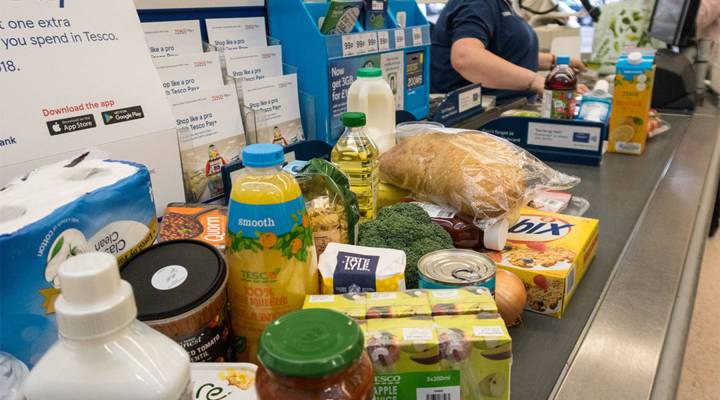
How big a problem is rising inflation in the United Kingdom?
How big a problem is rising inflation in the United Kingdom?

Inflation is a word on just about every central banker’s lips. Many are trying to figure out how to deal with rising prices due mostly to supply chain bottlenecks caused by surging demand as economies reopened from pandemic lockdowns.
On Tuesday, Australia’s central bank was first to act: It abandoned a key pillar of its bond-buying program. Many believe the Federal Reserve will follow on Wednesday by announcing it will start paring back its crisis-era asset-purchase program. The Bank of England’s turn comes on Thursday. And policymakers there are under increasing pressure to start raising interest rates to try to reign in rising prices.
A slew of factors have hit consumers and businesses particularly hard this year: The United Kingdom’s divorce from the European Union has resulted in fewer migrant workers from Eastern Europe, whom the nation relied on to harvest food and drive delivery trucks. An energy crisis has caused fuel prices to skyrocket. And the pandemic has thrown a jam in supply chains of all shapes and sizes.
It’s a perfect storm, according to Jack Pearce, business development manager at 50-year-old vegetable producer, Alfred G Pearce.

“We’re having to put up pay rates to retain and attract in staff. Our haulage rates went up over night. And that’s before we start talking about growing input costs of fertilizer, seed. We’re just seeing inflation everywhere,” he said.
His family’s business is the U.K.’s leading vegetable grower for prepared foods, which means the carrots, parsnips and onions end up in packs of pre-made salads, stir-fry meals, even cans of pickles sold in grocery stores or served in restaurants. Pearce said he’s trying not to increase his clients’ costs, but he might have to if the pressures don’t ease.
AGP certainly isn’t not alone. Ian Wright, boss of the U.K.’s Food and Drink Federation, appeared in the U.K. Parliament a few weeks ago with his own warning about inflation.
“In hospitality, which is a precursor of retail, inflation is currently running between 14 and 18%. That is terrifying,” he said.
All of this threatens to feed through to everyday shoppers, who already paid prices this September that were 3.1% higher than they were a year ago. Brexit-induced labor issues and pandemic supply chain problems are one component.
“There’s also quite strong demand, and therefore the economy is relatively hot,” said Yael Selfin, chief economist at KPMG in the U.K. “And that causes prices to go up as well. And that’s probably the area the Bank of England is more concerned about.”
She said the big question is when the central bank will act. Gov. Andrew Bailey and nine other Monetary Policy Committee members have expressed worries about rising inflation and the need to contain it. But two others say there’s little the central bank can do because problems are mostly due to shortages caused by surging demand as global economies restarted from their pandemic shutdowns.
“Monetary policy normally has a lag, and therefore central banks tend to target medium-term inflation rather than the short-term volatility. And given that a lot of this is going to be eased by potentially the end of next year, there’s less room for the U.K. central bank to intervene, especially aggressively at this stage,” Selfin said.
She said a rate rise, if not this week, could come early next year. But for companies like Jack Pearce’s, inflation is a problem now.

“I wish I had a crystal ball. I like to think that some of what we’re seeing will ease off in terms of energy prices and things like that. But we live in a free-market economy, last time I checked, and it’s very Darwinistic. The fittest businesses over the next three to five years will survive and those that don’t won’t be here,” he said.
Pearce said it’s going to come down to hard questions like analyzing labor, energy and input costs and thinking about ways to be more efficient technologically. Those elements, he said, are crucial to ensuring the business survives for the next generation.
There’s a lot happening in the world. Through it all, Marketplace is here for you.
You rely on Marketplace to break down the world’s events and tell you how it affects you in a fact-based, approachable way. We rely on your financial support to keep making that possible.
Your donation today powers the independent journalism that you rely on. For just $5/month, you can help sustain Marketplace so we can keep reporting on the things that matter to you.

















